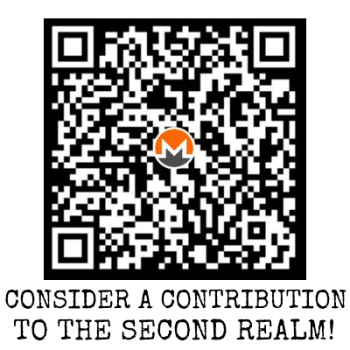Note: The following is an article by TVP host, Kyle Rearden, published on his blog, The Last Bastille.
For more information, listen to TVP #1.
“You have certain rights, period; and what the government does cannot change that. The government is a thug and a thief; be on your guard, watch it with caution, for it is powerful. But do not be awed by it. Do not grant it respect or moral sanction. Treat it as you would any villain…this, rather than political action, is the course I would recommend to libertarians. And the likelihood of its success is no less than the prospect of dismantling the government from within. Granted, it lacks the flashy trapping of political campaigns. There would be no campaigns and media hype. It would be a quiet revolution and one that is largely decentralized. It would entail dozens of different strategies. It would take a long time, and it wouldn’t be glamorous.”
Tyranny itself could be described as institutionalized coercion. Given that the State is a territorial monopolist in the provision of law, then legal abuse (aka, lawfare) becomes a fait accompli. As such, it is folly to think that controlled schizophrenics and political crusaders would be able to shrink the power of Leviathan through reformism. If vulnerability to coercion is the foot in the door for authoritarians, it becomes self-evident that reducing vulnerabilities might just provide a way out; how could this be accomplished, though?
Vonu, briefly defined, is the invulnerability to coercion. The very word itself is an awkward contraction of the phrase “VOluntary Not vUlnerable.” Throughout the 1960s, Rayo birthed this concept. He said:
“Apparently no English word exists for invulnerability to coercion. ‘Sovereignty’ comes close, but it is usually applied to States and implies not merely self-defense capability but power over others. This is not surprising since the very concept of invulnerability to coercion of individuals and non-coercive groups is relatively new, at least in European cultures. The traditional attitude is: rule or be ruled; there are no alternatives.”
Rayo is correct about so-called “sovereignty,” because sovereigns are legally defined as rulers. I pointed this out during an interview where I was helping to draw attention to the oxymoronic “sovereign citizens” (now called “American State Nationals”) and their fake judges. This is also why I’ve emphatically discouraged voluntaryists from describing themselves as being sovereign, because to do so means that you are declaring yourself a ruler, and by definition, anarchists want to live without rulers.
Why can’t libertarians just rely upon the government’s monopoly laws in order to enjoy invulnerability to coercion? Rayo explains:
“Liberty depends upon laws and their interpretations, and so is easily destroyed. Vonu (while not necessarily illegal) depends upon reality, not legality, and so is more durable.”
A distinction is made here between freedom, liberty, and vonu. Rayo considered freedom to be the total absence of coercion, liberty to be a general exemption from coercion, and vonu to be an invulnerability to coercion. Taking this typology as a given, it would seem to be the case that Rayo placed little faith in the efficacy of government laws to secure liberty, if at all. He further compared and contrasted vonu and liberty by saying that:
“Vonu and liberty interact in various ways. Achievement of vonu tends to increase liberty also…[v]onu also fosters other vonu…[l]arge scale use of liberty, on the other hand, tends to reduce liberty…[a] large degree of liberty, long continued, reduces vonu.”
From this description, Rayo perceives the relationship between vonu and liberty to be a zero-sum game, much like how a seesaw works. Vonu is portrayed as both self-reinforcing and a benefactor to liberty whereas greater exercises of liberty are not only self-destructive, but also antithetical to vonu itself. Therefore, as Rayo saw it, if you want to pursue freedom and/or liberty, then you ought to practice vonu exclusively.
While these observations might well be fascinating, how does this insight help one in dealing with the beast that is the State? Rayo explicates:
“A state can be truly limited only by vonu – its inability to impose servitude and collect taxes beyond a certain amount; not by liberty – such as ‘constitutional checks’ or a permissive king. A State which doesn’t plunder as much as is possible within its social/technological environment, or which doesn’t use the plunder effectively to perpetuate its power, will tend to be replaced, through political evolution, revolution, or foreign conquest, by one which does. This is one of the reasons why political crusades to repeal coercive laws or have them ruled ‘unconstitutional’ are a waste of effort – or worse.”
As the cherry on top, Rayo’s strategic viewpoint here is that laws do not restrain tyrants, but practical impediments to the initiation of the use of force does restrain tyrants. For example, search warrants are pieces of paper that theoretically prohibit the government from engaging in dragnet wiretapping, whereas cryptographic encryption has the potential to actually stop them from invading the privacy of your communications.
At the end of the day, though, vonu is not so much about providing a “solution” that satisfies the whims of every ideological variety known to mankind, but rather, points a way out for individuals to engage in self-liberation so that they may enjoy some degree of liberty during this lifetime.


23 Replies to “Vonu Defined: The Semantics of Freedom”